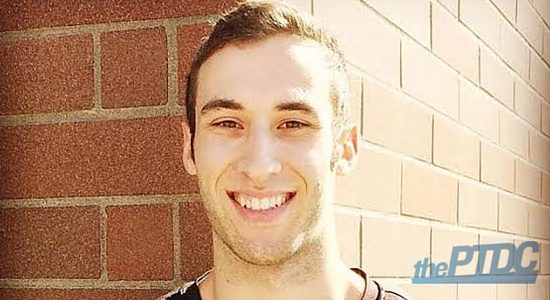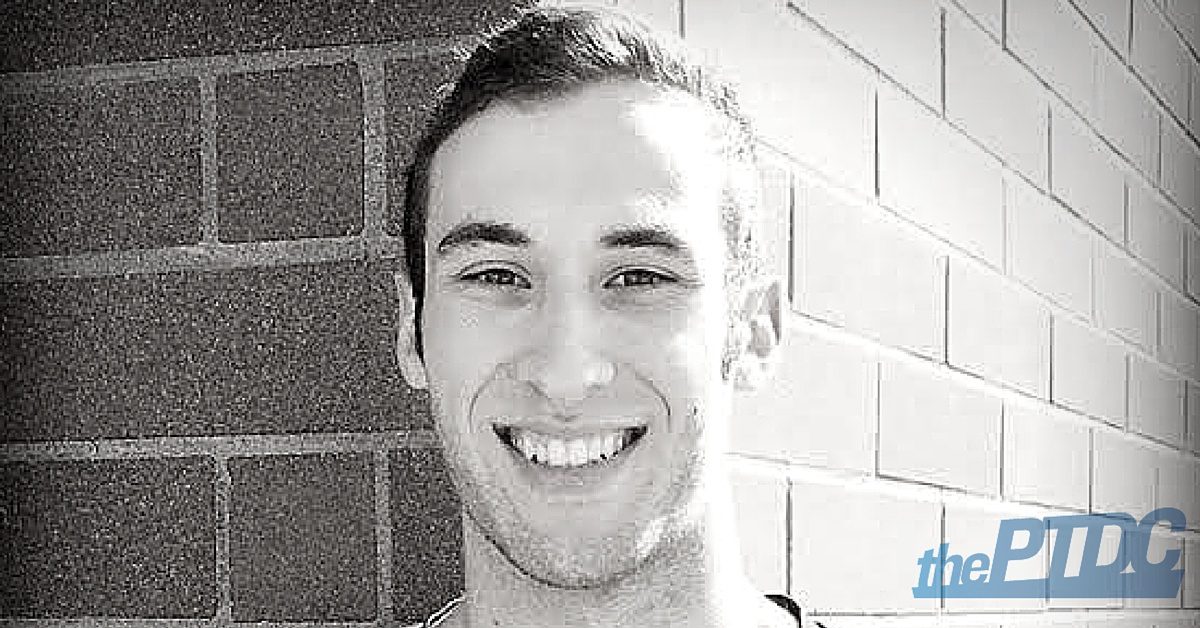Every so often, we'll feature coaches from this great The PTDC community that are really killing it and changing lives within their world, and ask them to share cool training, business, and productivity tips and practices.
This month we have Alex Cartmill, a personal trainer based out of Portland, Oregon; and founder of The Fitness Handbook, a blog that pulls together great minds from the industry to help others reach their full fitness potential.
Fun fact: Alex also oversees The PTDC's social media, but we're not playing favorites here. He's a bona fide hustler with a killer work ethic. We caught up with him to find out how he manages to do everything and stay productive.

Location: Portland, Oregon
Current position: Personal trainer, Social Media Overlord
Certifications: NASM CPT, American Red Cross CPR/AED/First-Aid
Number of years in the industry: 3
What's the one word that describes how you approach your personal training/coaching?
Habitual.
What is your main training focus? For yourself and your clients?
My ultimate goal with many of my clients is to make health and fitness a priority and a habit. Adherence is a huge issue. I focus on finding out why people don't adhere and what I can do to change that.
Your favorite aspect about being a personal trainer.
Watching clients reap the many benefits that stem from good dietary habits and regular physical activity. Also, "you changed my life" will never get old, no matter how many times I hear it.
What is your best time-saving shortcut to do better work?
Document everything and stay organized.
I can't tell you how much time I've wasted in the past trying to find a certain article to send to a client, or a workout from 6 months ago, because I wasn't documenting my work in an organized fashion. It's much easier to start this way than to have to organize something messy down the line.
What are some of your favorite technological tools to help you stay on top of everything?
- Slack: For team communication.
- Dropbox: For all shared documentation
- Gmail: For all email communication (aside from email lists)
- Mailchimp: For all email lists through The Fitness Handbook
- Crowdfire/Iconosquare: Great tools for staying on top of Instagram
- Google Calendar: For all my scheduling
What's your client screen process like? How do you decide how to start writing a program or working with a client?

Before I take a client, the first thing I make sure of is my ability to help them. If a client has a disorder or condition that I'm not familiar with, I pretty much refer out right away.
Second, I make sure I have time. There have been times in my career when taking even more clients would mean much less attention would be given to my current clients--and that doesn't work for me.
If those two things are ticked off, I will generally take them on. From there, I discuss physical goals (which will decide which general program template I start with) and try to get a good idea of their current relationship with health and fitness.
After the first session or so, I begin to cater the program to them. This process is continual and depends on several things, such as mindset, progress, motivation, and so on.
How do you organize all of your clients and schedules?
I simply use Google Calendar for most of my scheduling.
What are you currently reading?
I'm currently reading
Your Money and Your Brain: How the New Science of Neuroeconomics Can Help Make You Rich
It's got pretty interesting concepts and is the first book I've sat down and read in a while that isn't fitness-related.
What other activities or hobbies do you engage in to step away from "just being a coach?"
I enjoy beating people who dare to play me in Nintendo 64.
Your favorite quote:
"Unexpected kindness is the most powerful, least costly, and most underrated agent of human change." -Bob Kerrey
What was the best lesson you learned when you first started that now helps you out a lot?
It's okay to turn down clients. Right before I started taking clients, I was stoked to take every single person that came my way. My mindset changed with this after I had some great conversations with my mentors, and it paid off. You can't please everyone and you shouldn't attempt to.

What have you learned recently that you wished you learned on Day One?
Don't neglect mindset. Fitness is such a physical industry that it's easy to overlook the psychological component.
Get to the root of why clients have the goals they do or why they don't adhere to regular physical activity. For beginners, I spend the majority of my time working on this, as opposed to working on the program itself.
A perfect program doesn't do any good if the client doesn't stick to it. In 2014, only 20 percent of American adults met the physical activity guidelines, but I'd argue that it's not because they didn't have the perfect program to follow.
What are your future aspirations?
For one, I love The PTDC and the community we have built. Being a part of the team here has been fantastic, and I want to continue to grow with it.
We also have big plans for The Fitness Handbook. My ultimate goal with the blog is to be able to say, "We have an article for that" whenever someone asks me a question. We're on our way, but still have a ways to go. We're currently working on another branch of the brand, as well as having other exciting things in the pipeline.
Aside from that, I will always be working with people one way or another--whether that's in-person or online. Human interaction and the ability to change someone's life through health and fitness will continue to be a huge motivating factor for me.
Turning a love of training into a successful vocation is a challenge for many coaches. Any advice?
Never lose sight of why you're in the field. Many trainers go in for the money or "fame", if you will, and those trainers burn out and find the path to success a struggle. I've never met a successful trainer whose first priority wasn't his or her clients' well-being.









